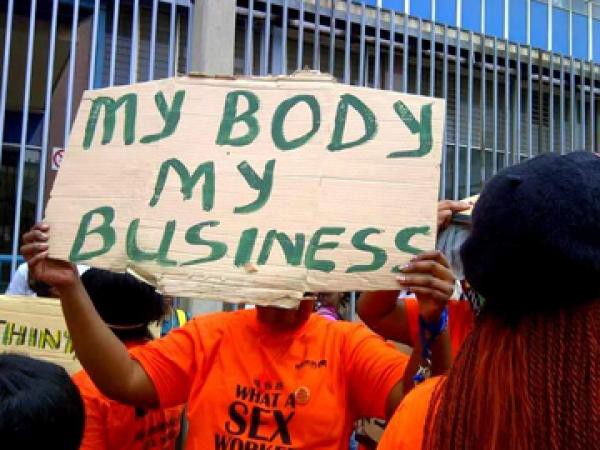I am a sex worker: criminalising my work puts me in danger
Why the Swedish Model does not work for South Africa
In 2013 the Commission for Gender Equality (CGE) held a dialogue in support of its position paper calling for the decriminalisation of sex work. During the dialogue, participants also discussed the less popular model of partial legalisation, also known as “the Swedish Model”.
On 26 May 2017 the South African Law Reform Commission (SALRC) published its recommendations and found that sex work should remain a criminal offence. The alternative proposed by the SALRC was the Swedish Model, which criminalises the buying of sex and other activities surrounding sex work, including running a brothel.
I’m a sex worker and this is my profession to support myself and my family, to further my studies, to save up for my future and to gain financial freedom and security.
The Swedish Model is based on the understanding that as a sex worker, I’m unconsciously making myself a victim of male sexual violence. It suggests that I did not choose to be a sex worker. From a very young age we are taught to choose between what is right and wrong. If someone chooses to become a sex worker over working in a factory, on a farm or being a domestic worker, it’s that individual’s choice.
Some argue that the decision to make a living as a sex worker should be classified as unconscious and that society forced the individual to make that choice, as a result of poverty and high unemployment rates. This is yet another form of patriarchal oppression. It asserts the belief that women can’t make choices and that poor women are even less able to independently decide for themselves. This misconception is based on social standards, moralistic and individualistic beliefs or norms.
The Swedish Model advocates that by criminalising clients, it will end the demand for sex services and abolish the industry. When in fact, criminalising clients merely forces me to work more creatively, driving my work into more dangerous and dark spaces. I would be forced to use a middleman or pimp in order to stay in business.
This ends up becoming an exploitative working environment that is harmful and dangerous with one party having more power than the other. In criminalisation, it has been shown that sex workers and clients are left at the mercy of corrupt police officers who look for bribes or who often rape sex workers in exchange for not being arrested.
As a sex worker, I will continue to fight for legislation that promotes safe working environments, dignity, freedom of trade, HIV prevention and the recognition of my profession as work. I want a country without exploitation by police, clients, pimps or any individual or organ of state.
I will fight for the freedom to enter into the mainstream economy without my job limiting what I can do. I want medical aid and a pension fund like any other job. I choose my sexual liberation and sensuality to be my passport to economic freedom. I choose to overcome my marginalisation and poverty.
We know that decriminalisation will not be a solution to all our issues, but it will give us potential for a win-win situation for all. We will not be reduced to being called victims or allowing the state to control our bodies.
Nosipho Vidima is a sex worker and is the human rights and lobbying officer at SWEAT.
Next: South Africa is making progress against its most deadly disease
Previous: Rocky road ahead for minerals bill
© 2017 GroundUp. 
This article is licensed under a Creative Commons Attribution-NoDerivatives 4.0 International License.
You may republish this article, so long as you credit the authors and GroundUp, and do not change the text. Please include a link back to the original article.



